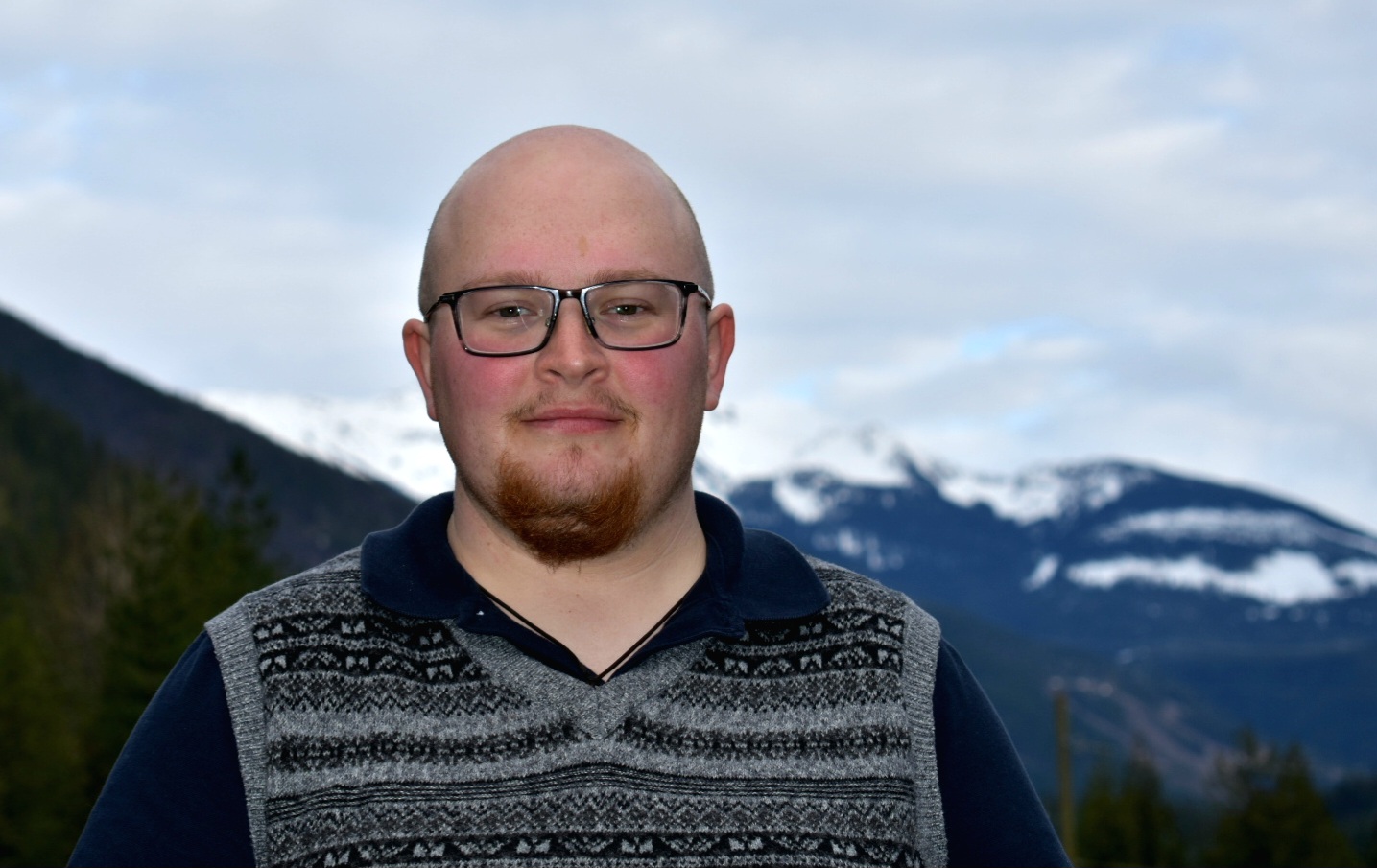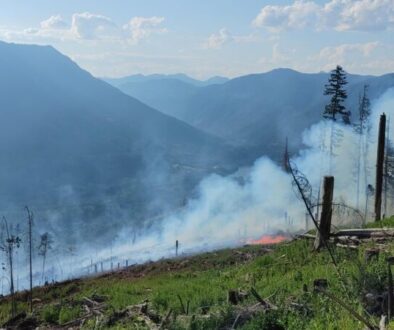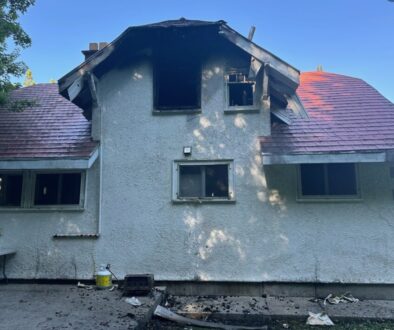Your friendly neighbourhood trans guy: journalist Lys Morton on the importance of queer voices in media
Lys Morton moved to Revelstoke this past September to take on the role of community journalist with the Revelstoke Mountaineer.
StokeFM reporter Melissa Jameson sat down with Morton, a transgender man, just ahead of the start of International Pride Month. They chatted about the importance of community-led media coverage of 2SLGBTQI+ communities, finding community after moving to a new town, and why celebrating Pride remains important 50 years after the first celebrations took place in Canada.
[interview transcript]
Lys Morton [LM]: My name is Lys Morton, he/him pronouns. I’m affectionately known as your friendly neighborhood trans guy.
Melissa Jameson [MJ]: And it’s great that you brought that up. Just because I think it’s wonderful, you sort of have this tagline that you’ve created for yourself and I was wondering if you would feel comfortable, maybe telling a little bit of a backstory on how you sort of came up with that tagline?
LM: I cannot think of the creator off the top of my head, unfortunately, but they are a queer trans black cosplay Spider-Man, very much known on the internet, and their tagline for quite some time was “your friendly neighborhood trans guy”, “your friendly neighborhood Spider-Man. Pulling into that, and it’s slowly creating kind of a small crew and I picked it up as well, being a deplorable Marvel fanboy myself, and it’s really kind of stuck along as I work in community journalism and just community events.
MJ: Because journalism in itself is a fairly public career, I’m wondering how you would describe your experience as a trans person as a journalist, you know, just sort of navigating being part of a new community?
LM: It hasn’t come up in a sense, I know that I’ve got in my bio. And when I did my introduction piece for the Mountaineer, I was like, ‘Hey, I’m your friendly neighborhood trans journalist’, just to kind of create that awareness and that visibility, in a sense, and at the same time, the spaces that I’ve been able to find where I can be unabashedly queer, I’ve been like, alright, cool. And in other areas, it’s not brought up potentially because of how well I as an individual, are often assumed to be just your regular cis guy. And so it flies still under the radar.
MJ: How would you say that your experience in Revelstoke would compare to say — was it Nanaimo that you came from?
LM: From being queer within general community? Again, there’s been a lot of flying under the radar. Within finding community, fortunately, there’s been the Queer Shreds group. There’s been kind of these … it’s been very interesting, the focus on outdoor activities and outdoor connection within that community. In other places I’ve lived, it’s a lot of bar hopping, which for some can be kind of isolating.
MJ: One of the things and one of the reasons I wanted to talk to you is because I’m always interested in how important it is for community to represent community. As a queer journalist, how important is it for that to happen?
LM: Especially with how messy stories have been covered in the past, and even within my timeframe of how it was like ‘oh, well we want to focus on this trauma point instead’.
I do think that we’re still very much in a point where community led is vital to help us show what stories can be and show what healing stories can be, what queer joy stories can be. As opposed to ‘alright, we’re only reporting in June, and then we’re only reporting hate crimes’.
MJ: What sorts of stories do you think are being missed that could be covered from people outside of the community if they made an effort?
LM: Quite, truly, queer normalcy. I’m thinking surrogacy is top of mind just because I watched that documentary of the doctor who did all the things… but instead of being like, oh my gosh, this couple is using surrogacy because that is the only biological way, let’s be like, ‘oh, yeah, this is a family that access surrogacy’. ‘Oh, yeah, here’s an author that’s coming to town that their poetry is represented in queerness. And they’ve been here and they’ve been attached to Nelson and they’ve helped build up’, to not make it focal point for to just be part of the human.
MJ: What would you say is sort of the central tenant of pride and the importance of pride for you personally?
LM: Visibility. The bad joke being a very visibly queer kid growing up as a child but having no representation, no language, no understanding of where that fit in. And so again, going back to continuously calling myself the friendly neighborhood trans guy, if there’s one person in a community who goes ‘oh, wait, that’s, I think that’s what I’m kind of supposed to align with’, that’s what I’m kind of striving for. Then that’s that’s a win for me.
MJ: What advice would you have for young people that maybe either are questioning or know very concretely that they maybe have a different gender identity than what they were assigned at birth or a different sexuality?
LM: Allow yourself flexibility. I’ve kind of flown just about every single flag under the rainbow in the exploring of trying to find language find, find place.
I am loving how much we are reclaiming the word queer, and just letting that hold space for identity.




